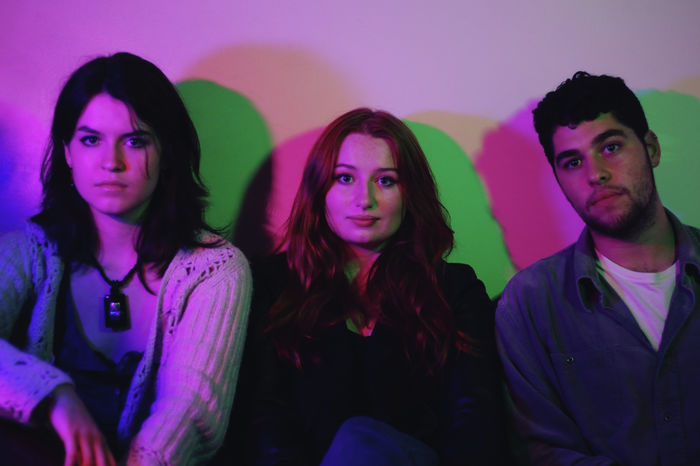The Waste Land: A beautifully experimental re-writing…when you can hear it
This adaptation takes a difficult poem and offers us a way in through vignettes

A man vocal about his love of T.S. Eliot is considered, to some, a red flag. High-brow and ‘high-cultured,’ the banker turned poet-critic has courted a coterie of elitist followers in the past hundred years. Replete with literary, anthropological, and historical allusions, his work can sometimes feel like an exercise in name-dropping - with the smug satisfaction of saying: ‘Ah yes, that’s a Dante quote, darling.’
It’s a feat in itself, therefore, that Pip Pearce’s production of The Waste Land comes off as solidly not too pretentious. It’s been three years in the making, and issues with audibility and pacing fumble the landing after such a long run-up. But with witty, profound writing and a production value that rivals even the best ADC mainshows, this adaptation takes a difficult poem and offers us a way in.
“One scene communicates a whole narrative without a single word”
Drawing from a team of fifteen writers, the collaborative effort of this production is its strength. Eliot’s poem is bitty—in his words, they’re ‘fragments [...] shored against my ruins’—and The Waste Land preserves this tradition through its vignette form. Some scenes are fairly naturalistic, like the beautifully absurd dinner party, hosted by vampiric swingers (Pip Pearce and Alice Roberts); others are expressed entirely through dance, with a particularly dramatic pas de deux that communicates a whole narrative without a single word.
Lateshows often draw the short straw when it comes to set, but not in this case. A curtain divides the front and back of the stage; it’s a clever visual trick, as scenes in the front are haunted by silhouettes lurking behind. Emma Kentridge’s performance as a young girl watching her grandmother age is particularly moving. Alessandra Rey watches the girl—the Chorus’ gaze—while the grandmother (Alice Roberts) sits behind the veil: visualising all stages of life. Similarly, the tableau projections that divide each segment are stunning—there were audible gasps from the audience. However, by the second half, these stage tricks begin to feel gimmicky and gratuitous.
Words are the driving force of this show. We need to hear them, whatever the flourishes of light and sound. But more often than not, I only caught fragments of sentences—sometimes mumbled, most of the time drowned out by music. Admittedly, T.S. Eliot described the poem as ‘just a piece of rhythmical grumbling,’ but the play is so dense and cryptic that speaking intelligibly is vitally important. Sounds of traffic located some scenes nicely, but completely muffled Pearce’s monologue, adding a touch of irony to the section, ‘What the Thunder Said’: I’ve no idea!
The Waste Land is experimental: we’re told that there is no underlying narrative and invited to make whatever inferences or comparisons we want. It’s refreshing to watch a show in Cambridge that tries to do things differently—often successfully. This show goes some way in rescuing T.S Eliot’s work from academic gatekeepers through its re-writing. Someone needs to collate these original pieces into an anthology, please! But on the stage, it’s the basics that hold this one back.
 Comment / Cambridge’s tourism risks commodifying students18 April 2025
Comment / Cambridge’s tourism risks commodifying students18 April 2025 News / Varsity ChatGPT survey17 April 2025
News / Varsity ChatGPT survey17 April 2025 News / Cambridge researchers build tool to predict cancer treatment success19 April 2025
News / Cambridge researchers build tool to predict cancer treatment success19 April 2025 News / Cambridge researchers find ‘strongest evidence yet’ of life on distant exoplanet18 April 2025
News / Cambridge researchers find ‘strongest evidence yet’ of life on distant exoplanet18 April 2025 News / Greenwich House occupiers miss deadline to respond to University legal action15 April 2025
News / Greenwich House occupiers miss deadline to respond to University legal action15 April 2025






